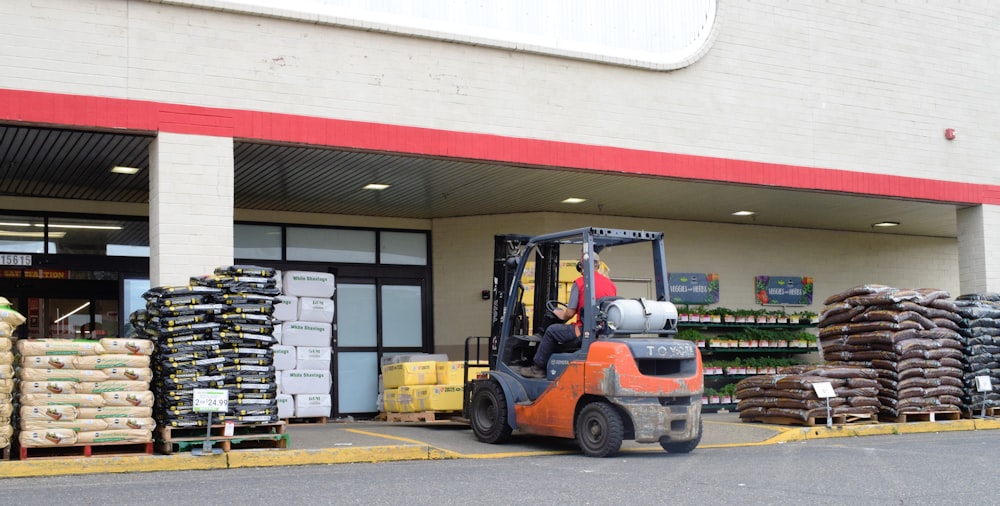Exploring the Legal Ramifications of Forklift Operator Negligence
Understanding Forklift Operator Negligence:
Forklifts are essential equipment in various industries, from warehouses to construction sites, facilitating the movement of heavy loads with ease. However, when operated negligently, these powerful machines can pose significant risks to both operators and bystanders. Forklift operator negligence refers to instances where operators fail to adhere to safety protocols, leading to accidents, injuries, and even fatalities in the workplace.
Legal Definitions and Responsibilities:
Under the law, forklift operators have a duty of care to operate their vehicles safely and responsibly. This duty extends to following proper training procedures, conducting pre-operation inspections, and adhering to established safety guidelines. Failure to fulfill these responsibilities can result in legal liability for the operator and their employer, opening them up to potential lawsuits and regulatory penalties.
Workplace Safety Regulations:
Workplace safety regulations, such as those outlined by the Occupational Safety and Health Administration (OSHA) in the United States, set forth specific requirements for the safe operation of forklifts. These regulations cover various aspects of forklift operation, including training and certification requirements, equipment maintenance, and load handling procedures. Employers are responsible for ensuring compliance with these regulations to protect the health and safety of their workers.
Common Causes of Forklift Accidents:
Forklift accidents can occur for various reasons, many of which stem from operator negligence. Common causes include speeding, improper turning, overloading, and failure to maintain a clear line of sight. Additionally, distractions such as using a mobile phone or engaging in conversation while operating a forklift can significantly increase the risk of accidents. Identifying and addressing these underlying causes is essential for preventing future incidents.
Legal Ramifications for Employers:
When a forklift accident occurs due to operator negligence, employers may face serious legal consequences. In addition to potential civil lawsuits filed by injured parties seeking compensation for damages, employers may also be subject to fines and penalties from regulatory agencies for violations of workplace safety regulations. Moreover, a reputation for lax safety practices can have long-term repercussions for an organization’s brand and profitability.
Employee Rights and Legal Recourse:
Workers who are injured as a result of forklift operator negligence have the right to seek legal recourse for their injuries and losses. Depending on the circumstances of the accident, injured employees may pursue compensation through workers’ compensation claims, personal injury lawsuits, or both. Legal assistance can help injured workers navigate the complexities of the legal process and ensure that their rights are protected.
Preventative Measures and Training Programs:
To mitigate the risks associated with forklift operator negligence, employers must prioritize comprehensive training programs for their forklift operators. These programs should cover not only the technical aspects of operating a forklift but also emphasize the importance of safety awareness and hazard recognition. Regular refresher courses and ongoing supervision can help reinforce safe operating practices and prevent accidents before they occur.
Corporate Liability and Risk Management:
For employers, addressing forklift operator negligence requires a proactive approach to risk management and workplace safety. This includes implementing policies and procedures that promote a culture of safety throughout the organization, conducting regular safety audits and inspections, and investing in equipment maintenance and upgrades. By prioritizing safety and compliance, employers can protect their workers and minimize their exposure to legal liability.
Regulatory Compliance and Best Practices:
In addition to meeting minimum regulatory requirements, employers should strive to exceed industry standards for forklift safety. This may involve implementing additional safety measures such as installing proximity sensors, using backup alarms, and implementing designated traffic lanes for forklift traffic. By adopting best practices and staying abreast of emerging safety trends, employers can stay ahead of potential risks and protect their workforce.
Conclusion:
Forklift operator negligence carries significant legal ramifications for both operators and employers. By understanding the causes of forklift accidents, prioritizing safety training and compliance, and implementing proactive risk management strategies, employers can reduce the likelihood of accidents and create a safer workplace environment for all. Read more about forklift operator negligence








